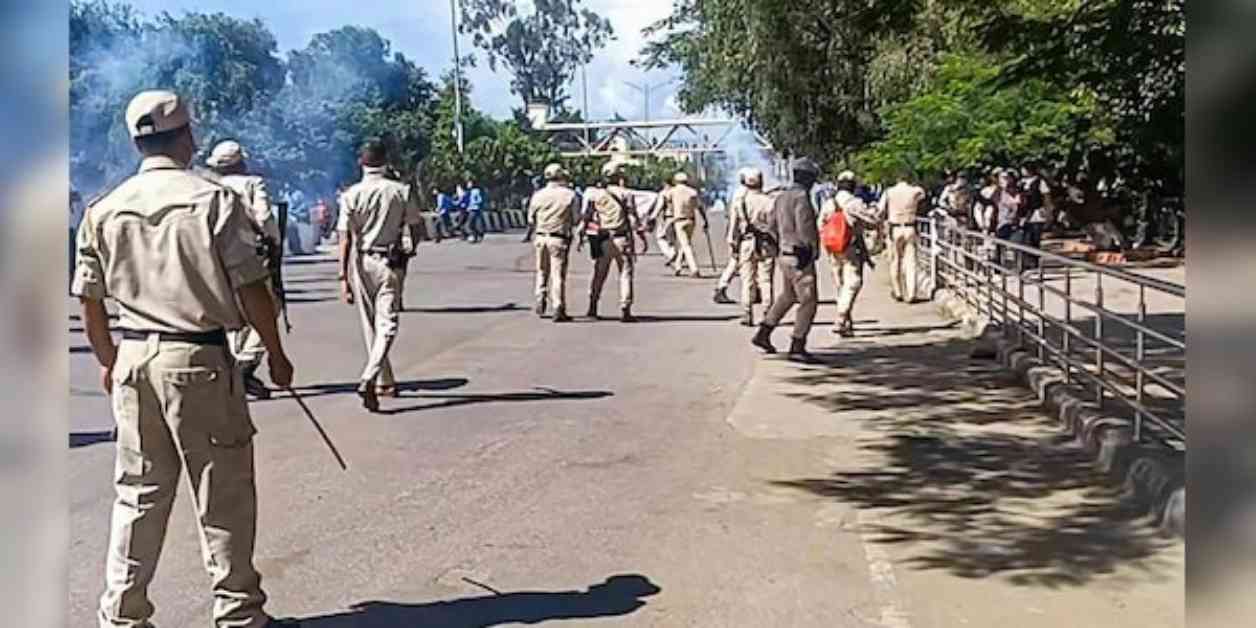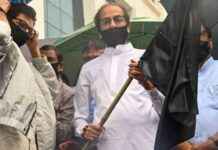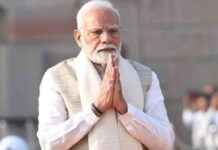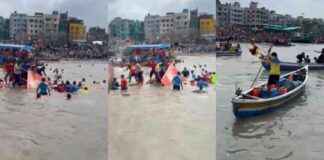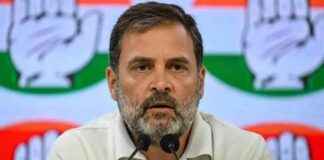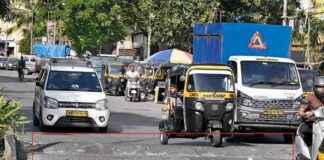Fresh Protests Erupt in Manipur as Internet Suspension Continues
Protestors were marching towards Raj Bhawan on Tuesday, which led to clashes between them and the security forces. (Photo: PTI/Representative)
The Manipur government on Tuesday suspended internet services in the entire state for five days after student protests turned violent in Imphal, when the agitators were trying to march towards Raj Bhawan. According to the state home department, the decision was taken to curb the use of social media for transmission of images, hate speech, and hate videos.
“Temporary suspension/ curbing of internet and mobile data services including Lease Lines, VSATs, broadbands and VPN services (were ordered) in the territorial jurisdiction of the state of Manipur for five days with effect from 3 pm of September 10 to 3 pm of September 15,” an official notification said.
Fresh protests were triggered in the violence-hit state after students and women demonstrators began demanding the removal of the DGP and the security advisor to the Manipur government, officials said. They were marching towards Raj Bhawan on Tuesday, which led to clashes between them and the security forces.
Why are students holding fresh protests in Manipur?
The march took place a day after hundreds of students began camping at Khwairamband Women Market on Monday. During the protests, demonstrators burned an effigy of Union Home Minister Amit Shah.
Previously, an indefinite curfew was imposed in Imphal East and West districts. The latest student protests are linked to ongoing law and order issues in Manipur in the wake of the recent drone and missile attacks in the state. “We have given a 24-hour deadline for Governor Lakshman Prasad Acharya’s response to the six demands we have placed…,” student leader Ch Victor Singh said on Tuesday morning.
Thousands of students also protested in front of Manipur Secretariat and Raj Bhavan on Monday. They are seeking action against those responsible for the fresh wave of violence, which involved the use of drones and missile attacks, killing at least eight persons.
Manipur police on Tuesday said that they have recovered tails of sophisticated rockets. “…There is evidence of drone and hi-tech missile attacks. Drones have been recovered. Tails of sophisticated rockets fired on civilian areas have been recovered…,” IGP (Administration) K Jayanta Singh said, refuting the claims of Lt Gen P C Nair, a retired DG of Assam Rifles, who had said that no drones were used and labelled Manipur Police as a ‘Meitei Police’.
Since May last year, Manipur has been engulfed in ethnic strife between the Meiteis and the Kukis.
The Impact of Internet Suspension on Manipur Protests
The decision to suspend internet services in Manipur has had a significant impact on the ongoing protests in the state. With limited access to social media and communication platforms, protestors are finding it challenging to organize and mobilize support for their cause. The restriction on internet services has also hindered the dissemination of information and updates regarding the protests, making it difficult for the public to stay informed about the situation on the ground.
The suspension of internet services has raised concerns about freedom of expression and the right to access information. In a digital age where communication and connectivity are essential, the government’s decision to cut off internet access has been criticized as a violation of basic rights. Without the ability to communicate online, protestors are resorting to traditional forms of communication, such as word of mouth and physical gatherings, to voice their grievances and demand action from the authorities.
Escalation of Protests in Manipur
The recent protests in Manipur have escalated following the violent clashes between protestors and security forces. The demands for the removal of key government officials indicate growing dissatisfaction and frustration among the populace. The use of drones and missile attacks in the state has further fueled tensions and raised concerns about the security situation in Manipur.
The presence of sophisticated rockets and evidence of hi-tech weaponry points to a dangerous escalation in the conflict. The discovery of drones and missiles used in attacks on civilian areas raises questions about the perpetrators behind these actions and their motives. The involvement of external actors or terrorist groups cannot be ruled out, adding another layer of complexity to the already volatile situation in Manipur.
Government Response and Calls for Action
In response to the protests and the demand for the removal of key officials, the Manipur government must address the grievances of the protestors and take concrete steps to restore peace and stability in the state. The use of force and suppression of dissent will only exacerbate the situation and lead to further unrest. Dialogue and engagement with the protestors are essential to resolving the underlying issues and addressing the root causes of the protests.
The call for action against those responsible for the violence and attacks in Manipur is justified and must be pursued with urgency. The government must investigate the incidents of drone and missile attacks thoroughly and hold the perpetrators accountable for their actions. Failure to address these security threats effectively will only embolden those seeking to destabilize the region and undermine the rule of law.
In conclusion, the ongoing protests in Manipur reflect deep-seated grievances and frustrations that must be addressed through dialogue, transparency, and accountability. The government’s decision to suspend internet services may have unintended consequences and further inflame tensions in the state. It is imperative that all stakeholders work together to de-escalate the situation, restore peace, and uphold the rights and safety of the people of Manipur.
